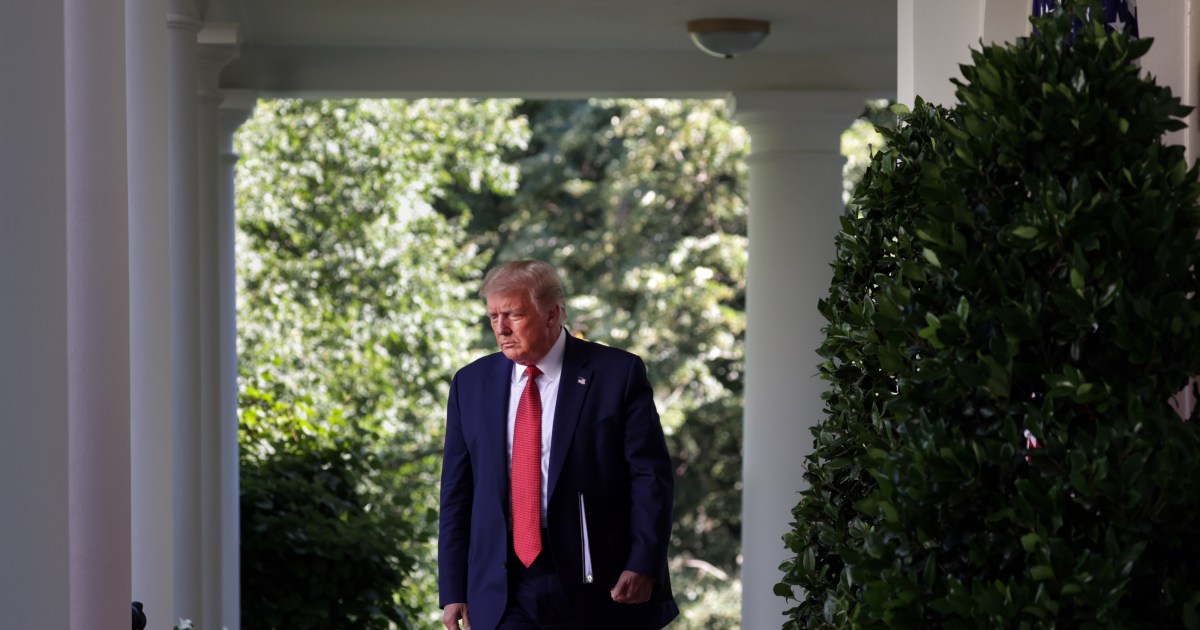US President Donald Trump announced Tuesday that he signed a law and an executive order to "hold" China on the National Security Law it imposed on Hong Kong.
At a White House press conference, Trump declared himself the most determined American president in dealing with China, before the US presidential elections scheduled for November.
He explained that the executive order he signed ends Hong Kong's preferential trade treatment, as punishment for China for what he called its "repressive" measures against Hong Kong people.
He said, "From now on, Hong Kong will be treated as mainland China, no special concessions, no special economic treatment, and no export of sensitive technology."
He believed that the people of Hong Kong "were deprived of their freedom and their rights were confiscated, and thus Hong Kong would have changed completely in my opinion, because it will not be able to compete with the free markets anymore, and many people will leave Hong Kong."
Hong Kong Law
Trump also announced that he signed the "Hong Kong Autonomy" Act, passed by Congress overwhelmingly in response to Beijing's imposition of the Hong Kong National Security Act.
The new law permits the imposition of sanctions on Chinese officials and the Hong Kong police, which are seen as hampering the independence of the city, and more importantly, it allows sanctions to be imposed on banks that conduct major dealings with them.
The Chinese response
For its part, Beijing rushed to respond, vowing to impose sanctions on the United States.
"In order to safeguard its legitimate interests, China will make the necessary response and impose sanctions on the relevant American people and entities," the Chinese Foreign Ministry said Wednesday in a statement broadcast by Chinese television.
She added that Beijing "strongly" condemns the US law and considers it "a blatant interference in Hong Kong affairs and China's internal affairs."
Over the past decade, Hong Kong has witnessed multiple waves of demonstrations, but last year it took an unprecedented scale when protests lasted 7 months, often with violent clashes.
With a view to ending the movement permanently, in late June Beijing adopted the National Security Law in Hong Kong, in a move that exceeded the powers of the local parliament.
The law punishes "sabotage, separatism, terrorism and dealing with foreign powers," and those accused of doing so may face prison terms.
The loose wording of this law leaves a large margin for various interpretations, and creates an atmosphere of fear in a city whose inhabitants are used to speaking freely.
The opposition and several Western countries believe that this text threatens the judicial and legislative independence of Hong Kong and the freedoms that its residents are expected to enjoy until 2047 under the principle of "one country, two systems".
On Tuesday, US Secretary of State Mike Pompeo called for the organization of "free and fair" elections in Hong Kong, after China considered that the primaries organized by the pro-democracy camp in the city might violate the new national security law.

